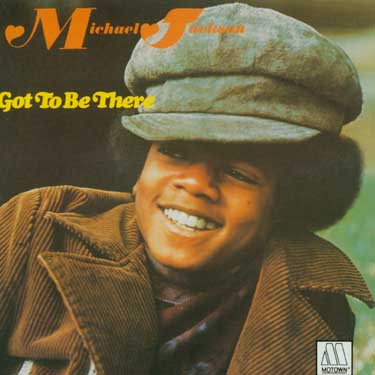The new film The Hurt Locker opens with this quote, from former NYTimes war correspondent Chris Hedges, in white type over a black background:
The rush of battle is a potent and often lethal addiction, for war is a drug.
As the movie rolled into the first scene, the last clause – “war is a drug” stayed highlighted.
I watched The Hurt Locker at Ed Morrisey’s place, with Ed and the First Mate, on Saturday night. I drove home wondering exactly what to make of it. I’ve seen lot of war movies, from a lot of subgenres. And viewed through the template of a film like Saving Private Ryan, The Big Red One, Go Tell The Spartans, Full Metal Jacket, A Bridge Too Far or Platoon (to pick half a dozen completely disparate examples), The Hurt Locker seemed to wander, to not make a lot of sense.
I had no idea where to start writing about it.
Of course, it’s an excellent movie. The direction (by Kathryn Bigelow) conveys the atmosphere of Iraq – the endless heat, the soldiers’ boredom, the paranoia of working and fighting amongst those who may be friendly, enemy or both – fluently.
The Hurt Locker is also the first movie about the Iraq war that I’ve heard of that doesn’t swerve into self-serving politics. It’s no The Green Berets – the filmmakers’ sympathies are detectable, but not especially in the foreground.
And the acting is superb; Jeremy Renner (most famous for starring in Dahmer, or as self-destructive punk rocker Jimmy Quidd in “House”), as a bomb disposal expert on his umpteenth tour of duty, brings a nuanced mania to his role – we’ll come back to that. Anthony Mackie and Brian Sanborn round out his team as the cold, calculating professional and the scared-out-of-his-mind kid (who is seeking counseling from an army psychologist played by Christian Camargo).
But I had no idea what to say about the film. Something didn’t quite add up.
Then I looked up the rest of Chris Hedges’ quote. I found it, from a piece he wrote for Amnesty International back in 2002:
…one I ingested for many years. It is peddled by myth makers -historians, war correspondents, filmmakers novelists and the state-all of whom endow it with qualities it often does possess: excitement, exoticism, power, chances to rise above our small stations in life, and a bizarre and fantastic universe that has a grotesque and dark beauty. It dominates culture, distorts memory, corrupts language and infects everything around it, even humor, which becomes preoccupied with the grim perversities of smut and death. Fundamental questions about the meaning, or meaninglessness, of our place on the planet are laid bare when we watch those around us sink to the lowest depths. War exposes the capacity for evil that lurks just below the surface within all of us.
And then it hit me. It’s not a war movie – or should I say, it’s not just a war movie. It’s a movie about war as a drug, and its affect on its addicts.
Sergeant James (replacing Guy Pearce, a bomb disposal expert killed in the film’s opening scene) takes risks that are seen as reckless, even suicidal, by the rest of his team, from his opening action (eschewing a bomb-disposal robot and walking into the middle of seven 155mm artillery shells rigged into a huge bomb), escalating through taking apart a car bomb as vague, paranoia-inducing signs of an insurgent attack mass all around them, to his ultimate scene, racing into a warren of alleys to try to find a tanker-bomb’s trigger-man rather than calling the infantry (whose job it is!) to do the job.
Other than Pearce, the two A-list actors in the movie provide turns that seem at first blush to be incoherent, almost nonsensical – until you go back to Hedges’ quote.
Ralph Fiennes plays the leader of a team of British contractors who give of whiffs of being ex-SAS men (dressing in mufti and passing as Arabs, their immediate-action drills, capturing high-value Iraqi targets, travelling about the desert in an SUV) who is killed in a long-range duel with an Iraqi sniper (who kills two of the other Brits). The team’s two survivors collapse – which is not the behavior one expects of Brit Special Forces veterans…
…but is what one might expect from an addict falling off a bad trip. James (and Mackie, as the professional soldier, Sergeant Sanborn) then one-up Fiennes – taking the position in which he was killed, despatching the sniper in a tense duel that leaves James with a gleeful psychological hangover (in the following scene, in the barracks).
And after a particularly reckless disarming job, David Morse steps into the scene, playing a bird colonel – a career soldier. Sounding as jovial as a surfer who’s still buzzing from catching a righteous curl, the colonel interrogates Morse in a scene that feels like it has to be a setup for a traditional Army-officer-style chewing-out; the colonel sounds too happy, too admiring of James’ recklessness, and his long record – hundreds of disarmings, following a tour in Afghanistan as a Ranger which, we are led to believe by extension, just wasn’t enough of a buzz. But the chewing-out never comes. It made me shake my head and write it off to bad editing at first – until I remembered Hedges’ quote. Morse’s colonel, a man who’d made a career out of fighting, was as giggly and overcome with adrenaline from the situation as a surfer waiting to go out and catch a different curl, or as a drug addict comparing highs with a fellow stoner – or as Sergeant James after a particularly dangerous job.
Of course, all addictions have their ups and downs; we see Sergeant Reed (and other addicts, like the psychologist) go through some “bad trips” (which I won’t spoil). But when the chance comes to break the addiction? And it’s not that the drug leaves him out of control; the movie includes scenes when his innate humanity goes thirteen rounds with his addiction. Staff Sergeant James is a fascinating character, as far from being a one-dimensional caricature of good, evil or insanity as I’ve seen.
Again – can’t spoil it.
The more I think about it, the more I want to see it again. It’s well worth a trip.
Ed reviews it, too…










